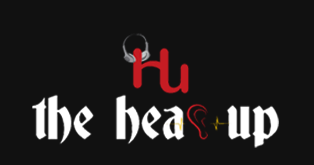POLITICS
Unveiling the Fundamentals of ‘Funda’: Navigating the Essence of a Unique Concept

In the world of colloquial communication, some terms defy conventional definitions and take on a life of their own like funda. One such term that has gained popularity, especially in informal conversations, is ‘funda’. Stemming from the informal Indian English vocabulary, ‘funda’ encapsulates a diverse range of meanings and connotations. This article aims to delve into the multifaceted concept of ‘funda,’ exploring its origins, evolving usage, and its significance in contemporary discourse.
Origins and Evolution Funda
The term ‘funda’ finds its roots in the Hindi language, where it is derived from the word “fundamental.” Its migration from Hindi to English-speaking circles was a natural linguistic progression, spurred by globalization, cultural exchange, and the rich linguistic diversity of India. ‘Funda’ initially referred to the basic principles or foundational knowledge about a particular topic. It was often used in educational contexts to denote a deep understanding of a subject matter.
Over time, however, ‘funda’ transcended its original usage and started to encompass broader nuances. It became a versatile term used to encapsulate explanations, insights, theories, and opinions, often in a succinct and relatable manner. This transformation made ‘funda’ an indispensable part of the informal vocabulary in India and among Indian diaspora communities.
Versatility of Meaning
The charm of ‘funda’ lies in its versatility. Depending on the context, it can serve as a noun, verb, or adjective, making it a flexible tool for communication. Here are some common ways ‘funda’ is used:
- Noun: In its original sense, ‘funda’ is used as a noun to refer to the core principles, essence, or basic knowledge of a subject. For instance, if someone is explaining the fundamentals of a complex concept, they might say, “Let me give you the funda.”
- Verb: As a verb, ‘funda’ signifies the act of explaining or imparting understanding about something. For example, “I’ll funda it to you later.”
- Adjective: When used as an adjective, ‘funda’ describes something that is deeply rooted or fundamental. For instance, “He has a funda understanding of physics.”
Contemporary Usage and Impact
In today’s digital age, where concise communication is valued, ‘funda’ has found its niche. It thrives in social media interactions, meme culture, and casual conversations. It bridges the gap between formal and informal communication styles, enabling individuals to share insights and ideas in a more relatable manner. This adaptability has contributed to the widespread adoption of ‘funda’ across various contexts, from education to entertainment.
Furthermore, ‘funda’ has become a symbol of cultural identity and linguistic camaraderie, especially among young Indians and those who appreciate the richness of Indian English. It serves as a testament to the dynamic nature of languages and their ability to evolve while retaining cultural connections.
As the concept of ‘funda’ continues to evolve, it raises intriguing questions about the nature of language itself. How do words transcend their original definitions to encompass a wide array of meanings? How does a single term come to symbolize an entire spectrum of understanding, from the basic to the profound? These questions underscore the dynamic and adaptive nature of language, reflecting the ever-changing landscape of human communication.
Moreover, ‘funda’ serves as a reminder that language is not merely a tool for conveying information; it’s a vehicle for culture, identity, and shared experiences. Every culture and community possesses its unique linguistic gems that encapsulate their values, humor, and outlook on life. These linguistic nuances, like ‘funda,’ create bridges between individuals, fostering a sense of belonging and unity.
In the professional realm, ‘funda’ can be seen as a microcosm of the broader trend toward informal and relatable communication. In business, academia, and even public speaking, there’s a growing emphasis on connecting with audiences on a personal level. Complex ideas are often distilled into relatable anecdotes, analogies, and simplified explanations, much like the essence of ‘funda’. This shift underscores the importance of effective communication in a world inundated with information.
However, like any linguistic phenomenon, the use of ‘funda’ isn’t without its challenges. Its informal nature might not always be suitable in formal or technical contexts, where precision and clarity are paramount. Striking a balance between approachable communication and maintaining professionalism remains crucial.
In conclusion, ‘funda’ is not just a term; it’s a linguistic kaleidoscope that encapsulates the evolution of language, culture, and communication. It bridges gaps, sparks conversations, and unites diverse individuals under a shared linguistic umbrella. Its versatility serves as a reflection of our adaptive nature as communicators, as we seek novel ways to convey complex ideas in simple yet impactful terms.
As languages continue to evolve and cultures intermingle, we can expect more terms like ‘funda’ to emerge—terms that carry the weight of tradition while embracing the innovations of the present. So, the next time you encounter ‘funda’ in a conversation or see it shared in a meme, take a moment to appreciate its journey from a fundamental concept to a versatile linguistic gem that transcends borders and generations.
Conclusion
The journey of ‘funda’ from its Hindi origins to its present-day usage highlights the intricate interplay between language, culture, and communication. Its versatility, adaptability, and cultural resonance have solidified its place in modern discourse. As we navigate the complex landscape of language and its evolution, ‘funda’ stands as a reminder that even informal terms can encapsulate profound meanings and connect individuals across linguistic and cultural boundaries.

The Hear UP is a leading technology publication house. Our origin dates back to 2016 as a small forum for technology enthusiasts. Since then, The Hear UP has transformed into a trusted source for emerging tech and science news.
The majority of our news is provided by staff writers. Other news is provided by news agencies and freelancers.
All of our contributors are members of the Society of Professional Journalists.
If you need to contact a news editor from The Hear UP you can find a list of email addresses on our contact page.
Our Organisation
The Hear UP










